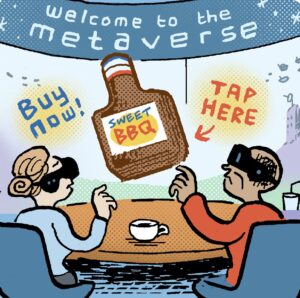 Video demand-side platform (DSP) TubeMogul will manage computer-manufacturer Lenovo’s global programmatic activity, an expansion of an existing partnership that reflects both cost-savings from automated ad sales and a greater interest in audience buying.
Video demand-side platform (DSP) TubeMogul will manage computer-manufacturer Lenovo’s global programmatic activity, an expansion of an existing partnership that reflects both cost-savings from automated ad sales and a greater interest in audience buying.
For Lenovo, this increased focused on online video comes after two years of digital marketing expansion that remains largely concentrated on search and social media.
While the Beijing-based multinational won’t reveal its media spending, Gary Milner, director of global digital marketing at Lenovo, said that working with TubeMogul on an ad hoc basis in the last year reduced media expenses by roughly 70% when compared to what it spent on ad networks. In striking this larger deal with TubeMogul, Lenovo will require their global media agencies to use TubeMogul’s technology to deliver its video campaigns.
“It helps that we now have an international business with a strong presence in Asia,” said TubeMogul CEO Brett Wilson. “Secondly, with us, Lenovo only has to rely on one software system to run their online video campaigns around the world. And because we’re strictly a video advertising company coming from the demand-side, the fact that we’re not trying to be all things to all people gives us a clearer purpose for clients like Lenovo.”
Ready for primetime: One element of TubeMogul that appealed to Lenovo marketing executives was its emphasis on metrics such as gross ratings points and viewability. Display banners are fine for direct response, “but we’re interested in driving higher engagement for our ads and brand lift,” Milner said. “This is a strategic look at how we buy video. The fact that 80% of media is bought on IOs is not acceptable anymore; we need to move to a direct software model and change the way we do things.”
Lenovo executives readily admit that the computer-maker isn’t very focused on doing television advertising and has even less interest in traditional display ads. “We’ve never been a big TV ad buyer, except in places like China,” Milner said. “It’s not that TV isn’t worthwhile, it’s simply that Lenovo is structured differently from most brands.”
Specifically, Lenovo’s marketing spend isn’t siloed into media categories like print, out-of-home, broadcast and digital. Even within digital, the decisions that go into charting a social campaign or one focused on search engine optimization also flow through to display, mobile and online video, without portioning out set dollars to each area. “All of these parts of the marketing chain, especially as mobile becomes more important, mutually reinforces the message from any one area to all the other marketing touchpoints.”
Depending on the performance of its video ads, Lenovo might eventually decide to expand that work to TV in more determined way. “For most brands, digital video is a supplement to TV,” Milner said. “For us, TV is a supplement to digital video.”
Audiences, not destinations: The ability to target audiences along those marketing touchpoints is another reason for Lenovo’s decision to take programmatic in general – and online video specifically – more seriously.
Finding consumers that would be more amenable to its messages about the virtues of its lines of PCs, smartphones and tablets was the other major concern for Lenovo.
Lenovo as a company is at an interesting point in its 30-year history. Earlier this year, industry analyst Gartner said that Lenovo had surpassed rival HP as the world’s biggest marketer of PCs.
But the PC market has also been shrinking more rapidly the past few years, threatening the gains Lenovo has made. Consequently, cutting waste and generating greater ROI from marketing investments has become even more important. Buying placements on major publishers’ sites directly or via ad networks was deemed too costly and inefficient, Milner said.
“One of the strategic decisions we’ve talked about is this larger marketing movement of comparing premium or direct sales to programmatic,” Milner said. “What counts these days is hitting the right audience, not the right site in the hopes that context will bring a portion of the intended consumers you want to attract might be there. We’ve seen up to 4x in awareness and product consideration from using programmatic channels. We’ve lowered costs without losing brand lift. So it makes sense to expand the work we’ve been doing with TubeMogul already.”
The agreement between the two companies is set for 12 months, though Milner added that he expected the relationship to go well beyond that time period.












